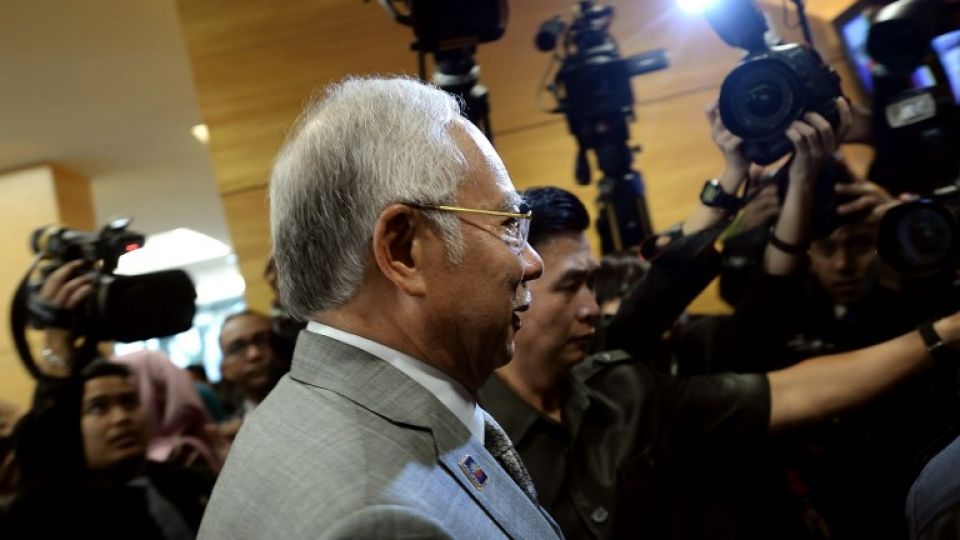March 27, 2018
Malaysia tabled an anti-fake news bill at the Dewan Rakyat or lower house of Parliament on Monday, March 26.
Once the Bill takes effect, those found guilty of “knowingly creating, offering, publishing, printing, distributing, circulating or disseminating” fake news may find themselves behind bars for up to 10 years, slapped with a hefty fine of up to RM500,000 ($128,215) or both, The Star reported.
The Bill defines fake news as “any news, information, data and reports which is, or are, wholly or partly false whether in the form of features, visuals or audio recordings or in any other form capable of suggesting words or ideas”.
According to a Frequently Asked Question sheet made available to The Star, the bill is needed because the current Penal Code, the Printing Presses and Publications Act 1984 and the Communications and Multimedia Act 1998 are not sufficient to cope with the complex nature of the spread of fake news in this technological era.
“As technology advances with time, the dissemination of fake news becomes a global concern and more serious in that it affects the public,” the Bill states.
Those who assist financially in committing or facilitating the offence may also find themselves on the wrong side of the law, and can be fined up to RM500,000, imprisoned for up to 10 years or both.
Even those beyond Malaysia’s borders may be affected, as the Bill applies to any individual of any nationality if the fake news targets Malaysia or its citizens.
The Bill also states that any person who fails to remove publications containing fake news is also liable to a fine up to RM100,000 and in the case of a continuing offence, to a further fine up to RM3,000 daily during which the offence continues after conviction, according to The Star.
Some have raised concerns that the new bill will be used to stifle free speech.
“This bill is an assault on freedom of expression. The vague and broad definition of ‘fake news’, combined with severe punishments and arbitrary arrest powers for police, shows that this is nothing but a blatant attempt to shield the government from peaceful criticism,” James Gomez, Amnesty International’s Director for Southeast Asia and the Pacific said in a statement on the organisation’s website.
“Malaysia has a long and troubling track record of using its legal books to silence dissent. It is no coincidence that this law has been tabled with general elections just around the corner. We are already seeing how the government is closing the space for public debate ahead of the polls.”
The country’s 14th general election will be held by August latest and will see the main opposition coalition Pakatan Harapan take on the ruling Barisan Nasional (BN) coalition which has been in power for decades.
Just last week, The Star reported that Deputy Communications and Multimedia Minister Datuk Jailani Johari said that any information related to 1Malaysia Development Bhd (1MDB) that has not been verified by the Government is considered fake news.
The state fund came to the world’s attention in 2015 for the alleged misappropriation of funds. About $700 million was thought to have ended up in the personal bank accounts of current Prime Minister Najib Razak, who was eventually cleared of wrongdoing following an investigation.
According to The Star, Jailani said that 1MDB has been investigated by the police and Attorney-General and the reports presented to the Parliament’s Public Accounts Committee.
Recommendations from the PAC report have been accepted and been implemented by the Government, he added.
“The process of rationalisation has also been implemented well,” he said, according to The Star.
“As such, the Government views that other than the information that has been verified by the Government, all other information is deemed as fake news.”
In a statement last Wednesday (March 21), Minister in the Prime Minister’s Department Datuk Seri Azalina Othman Said said that the bill was drawn up in the interests of the people in order to protect them from being misinformed and being flooded with unverified news, The Star reported.
“The proposed law is not meant to stop them from their right to freedom of speech as stated the Federal Constitution,” she said, according to The Star.
She said that she hoped that all parties would respect the Government’s efforts and not indulge in polemics.


